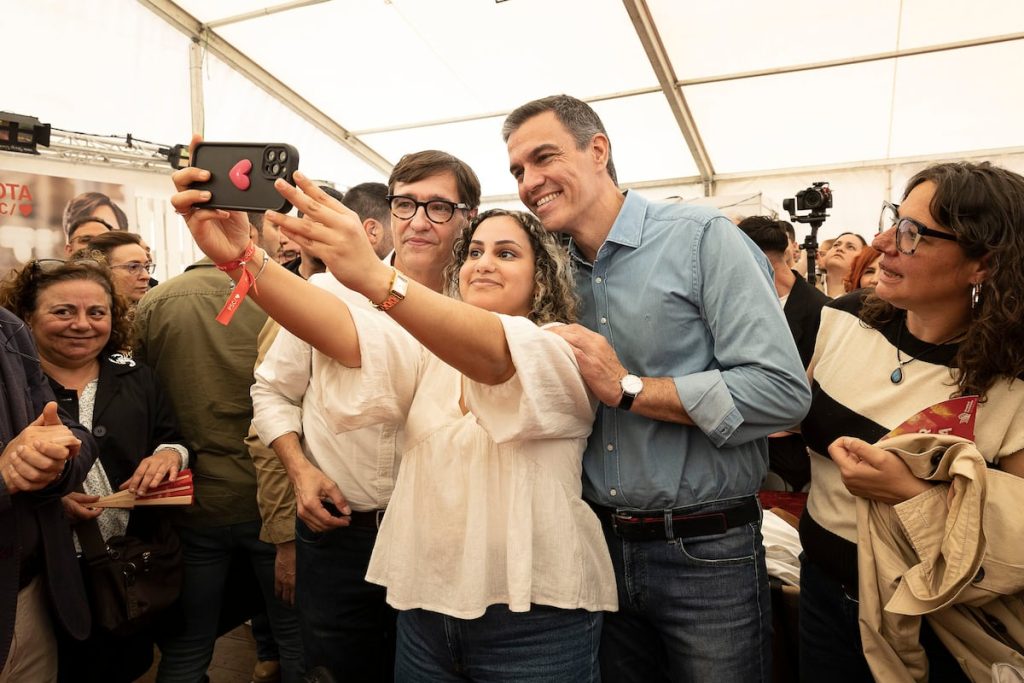Pedro Sánchez has completed his unique reflection without the romantic aura that was promised. The family spiritual exercises that led him to cancel his agenda for five days have left things at a standstill: I stay. And the debate focuses on how to move “from one point to another”. The cards are on the table. On one hand, the feeling of relief predominates in the socialist sphere, as well as in the left in general and even in the independence movement that feared a momentary abyss. It is true that some in Catalonia – with a tendency to see the world through a hole, as we say in Catalan – interpret Sanchez’s move as a mere bluff to influence the electoral campaign. However, beyond these rhetorical exercises, calm prevails because there is currently no interest among those who support the government in a crisis that could bring the PP to power.
On the other hand, the PP has been relentless in their attacks against the president. A response that seems to go against tactical common sense. More war is not the best way to capitalize on the situation. But Feijóo lacks a project or the flexibility to seek a counter-move by presenting himself positively: here I am ready to take over. With the same sour and bleak tone as always, Feijóo does not point to the future; he simply continues with the exercise of relentless disqualification against Sánchez, with the single argument that he is already in the past, no matter how much he remains here.
The novelty lies in the old PSOE and its nostalgics who, settled in the resentment of those who believed themselves to be the owners of the party and whom Pedro Sánchez defeated, against all odds, after they kicked him out, have taken a step forward, even if only rhetorical, as they do not have many resources for much else, in their fight against the traitor. This also confirms the joining of a significant number of intellectuals and journalists, some of them from the left, to the fight against Sánchez, with a warm welcome in the conservative press, which recruits souls of old progressives in accelerated conversion.
While we wait for Sanchez to clarify his program of reforms for institutions threatened by the confusion between political power and judicial power, it is worth noting a couple of issues. The first is that the responsibility for the politicization of the judiciary lies with the PP, which has been refusing for five years to renew the General Council of the Judiciary for strictly political reasons: they currently have a conservative majority that benefits them and are unwilling to lose it. In other words, those who accuse Sánchez of wanting to politicize the judiciary are the ones who have been politicizing it for some time. The escalation of voices accusing the president of having an authoritarian reform project of the regime, something they do not even see in Abascal’s proposals.
The problem of the right is that the logic of non-stop confrontation has led them into a slow exit alley: without space for alliances, locked in with Vox in the right-wing barracks, far from centrality. A particular case of strategic clumsiness: this path will be difficult for Feijóo to navigate. This is even more evident at a time when peripheral right-wing parties, which could lend a hand in the future, are far from the PP. The PNV has renewed its commitment to the PSOE in the Basque Country, and Junts still has a long way to go to mature and enter the polyvalent game of pujolism.
It is up to Sánchez to take the promised step without delay: make the necessary reforms for the dysfunctional judicial and political issues he himself denounces to be corrected and contribute to creating the climate of respect necessary for the normal functionality of institutions. A responsible right should collaborate. The fundamental problem is that what the PP and Vox are doing is not a Spanish singularity. It is another expression of the authoritarian drift that the right has been leading in Europe for years, what we call post-democratic authoritarianism. And for this reason, it is even more dangerous: the Spanish reaction is not an isolated phenomenon. It is surprising that intellectuals of liberal and democratic tradition are signing up for this task, many of them, it must be said, as a reaction to the Catalan independence movement, getting caught up in the struggle of homeland against homeland. Or, in other words, in the dispute over national identity that, like everything that takes on a transcendental dimension, creates the worst rifts.
In conclusion, despite the confusion caused by various political players, Sanchez’s recent actions have revealed the lack of a viable alternative, both within and outside the PSOE. The upcoming events in Catalonia will be crucial for the socialist party. The PP will have to reconsider if they want and are able to change their tone: raising their image of governability and moving away from constant conflict. Meanwhile, Sanchez needs to solidify the transition with a genuine exercise of democratic reform. This moment signifies an important crossroads for Spanish politics, with the necessity for collaboration and responsible action among all parties to ensure the stability and functionality of democratic institutions.


